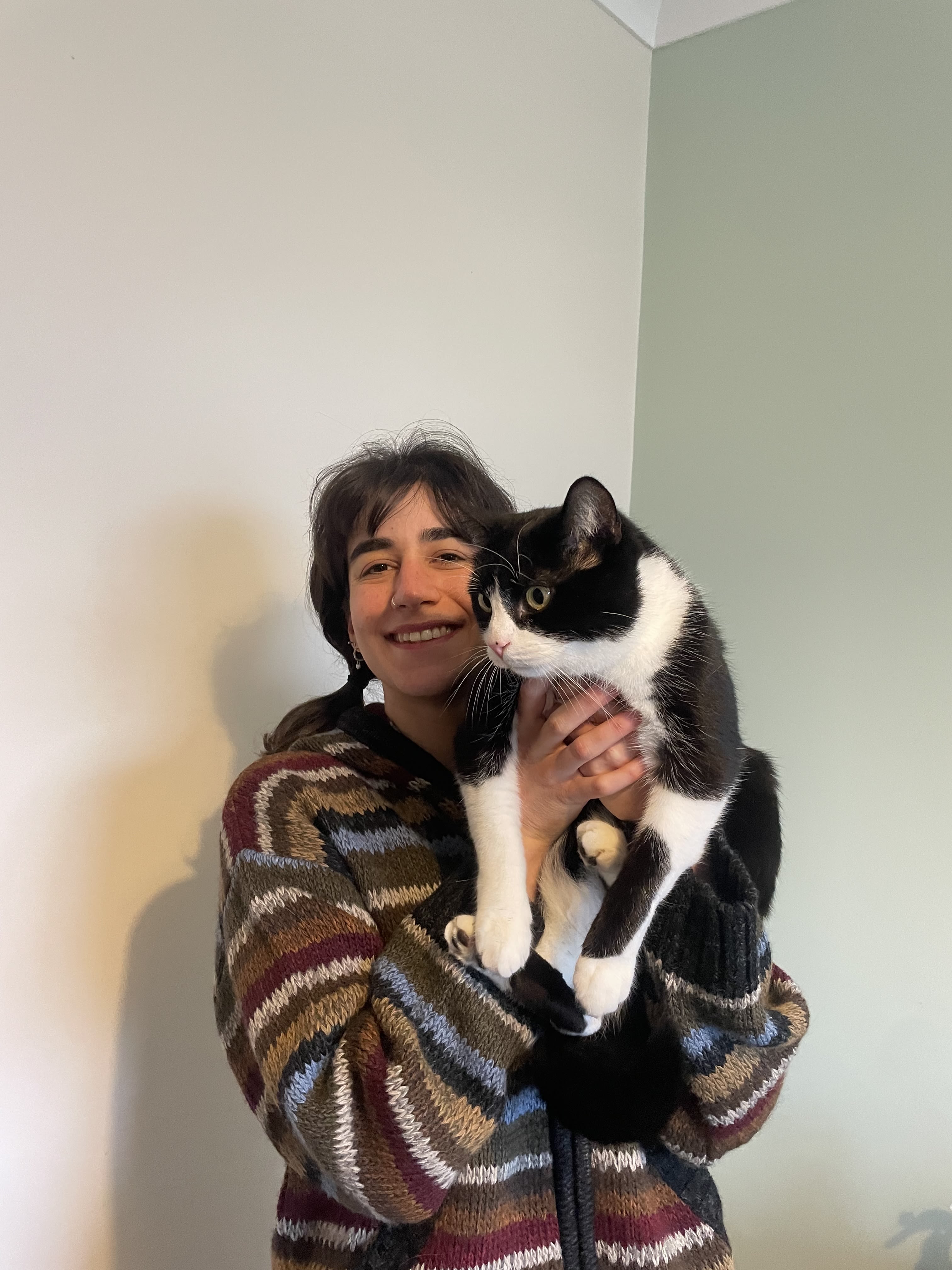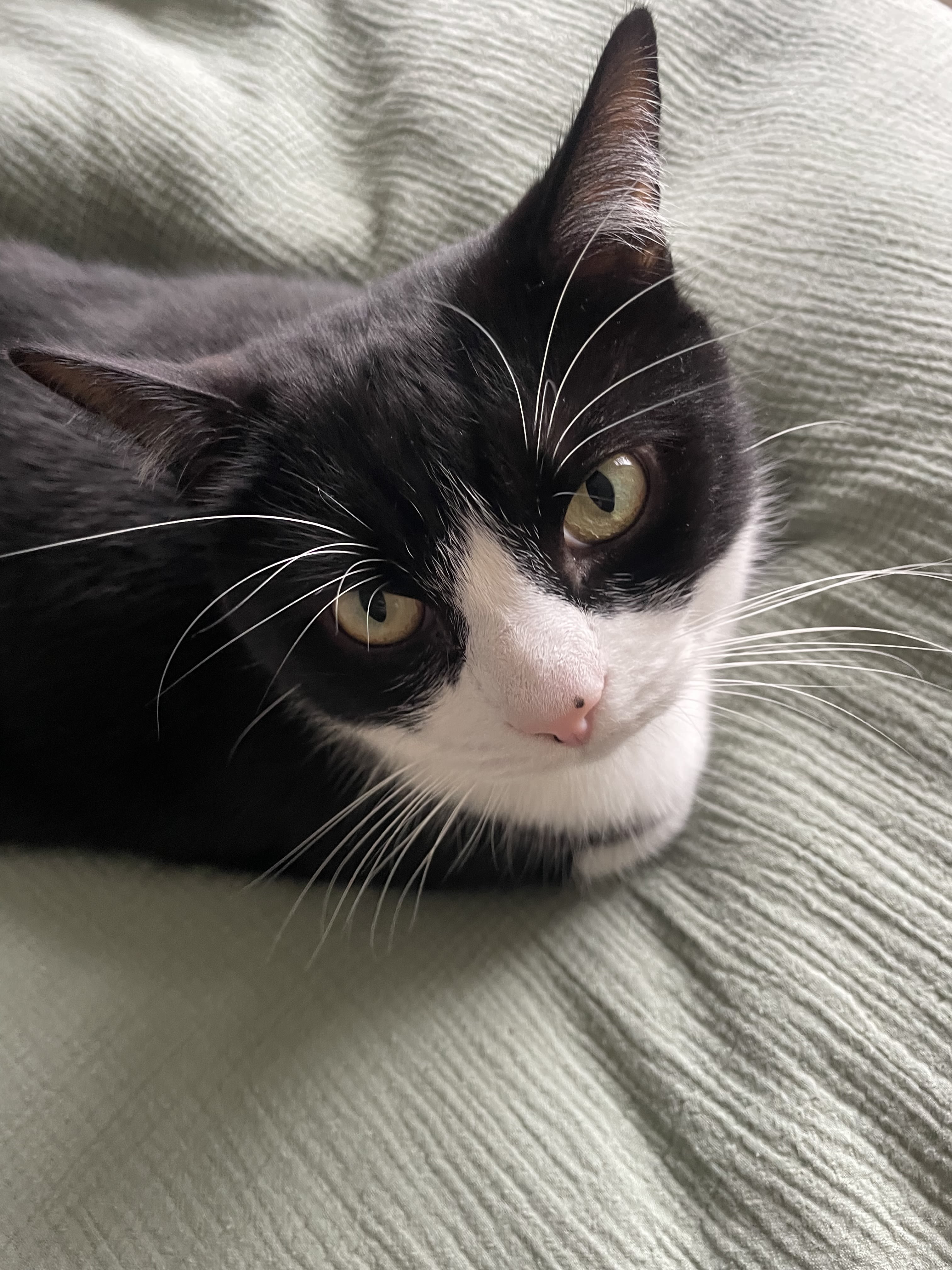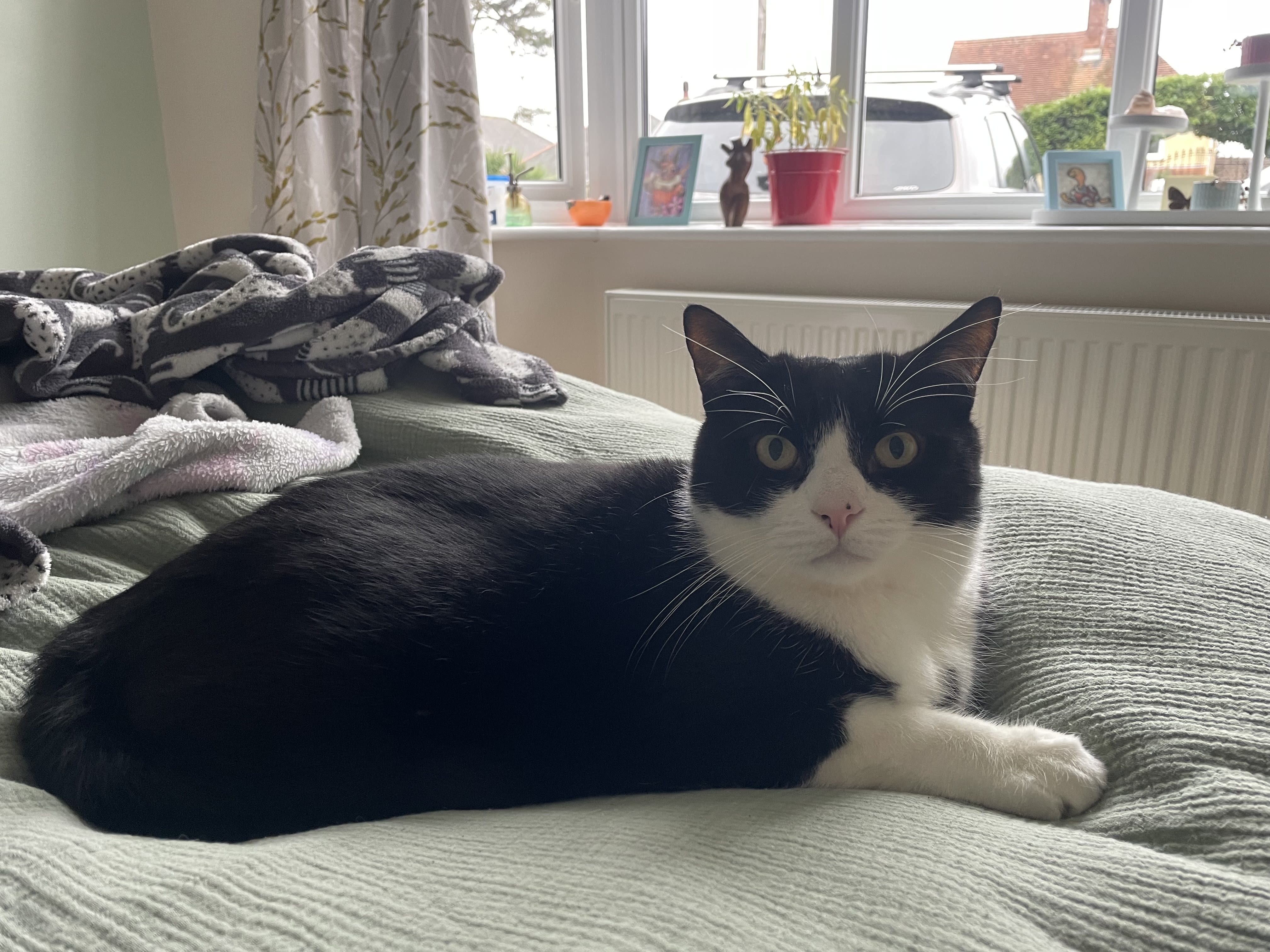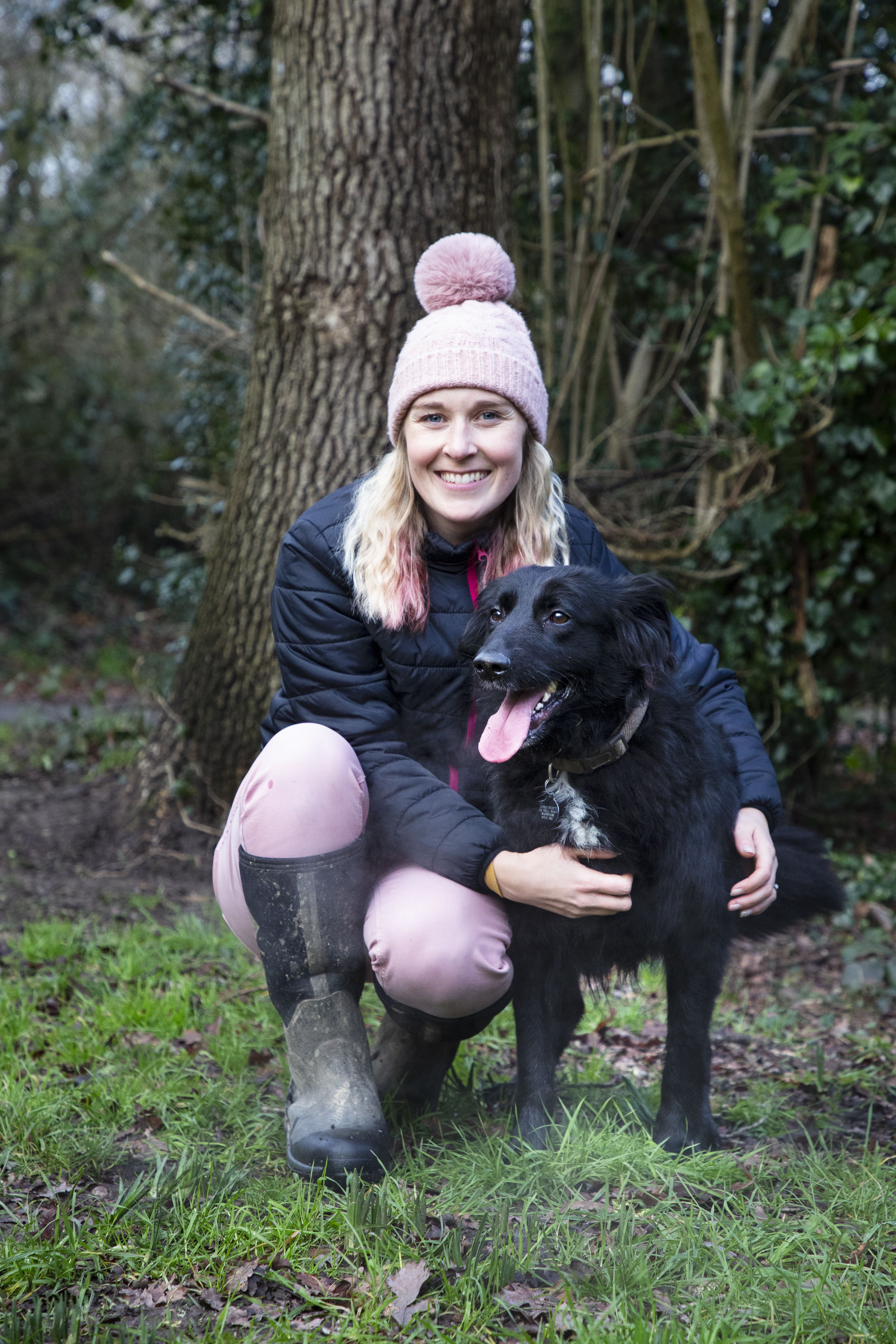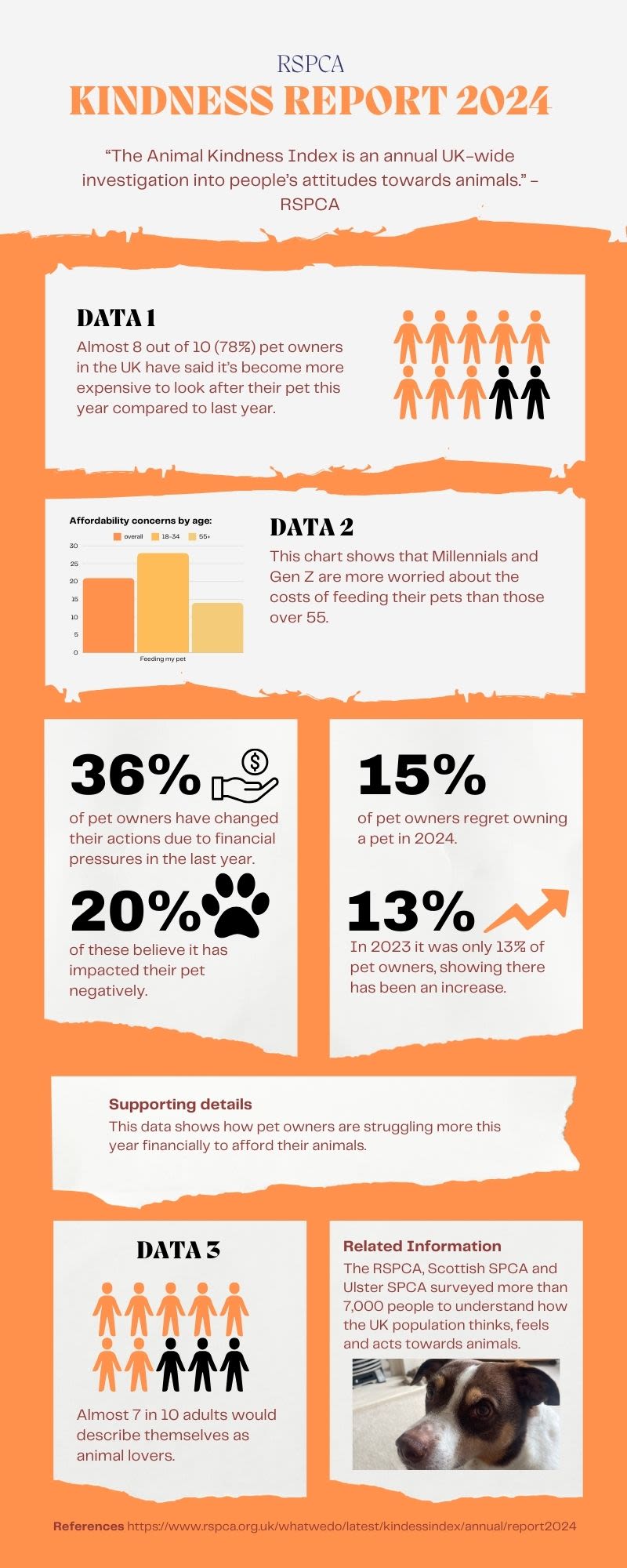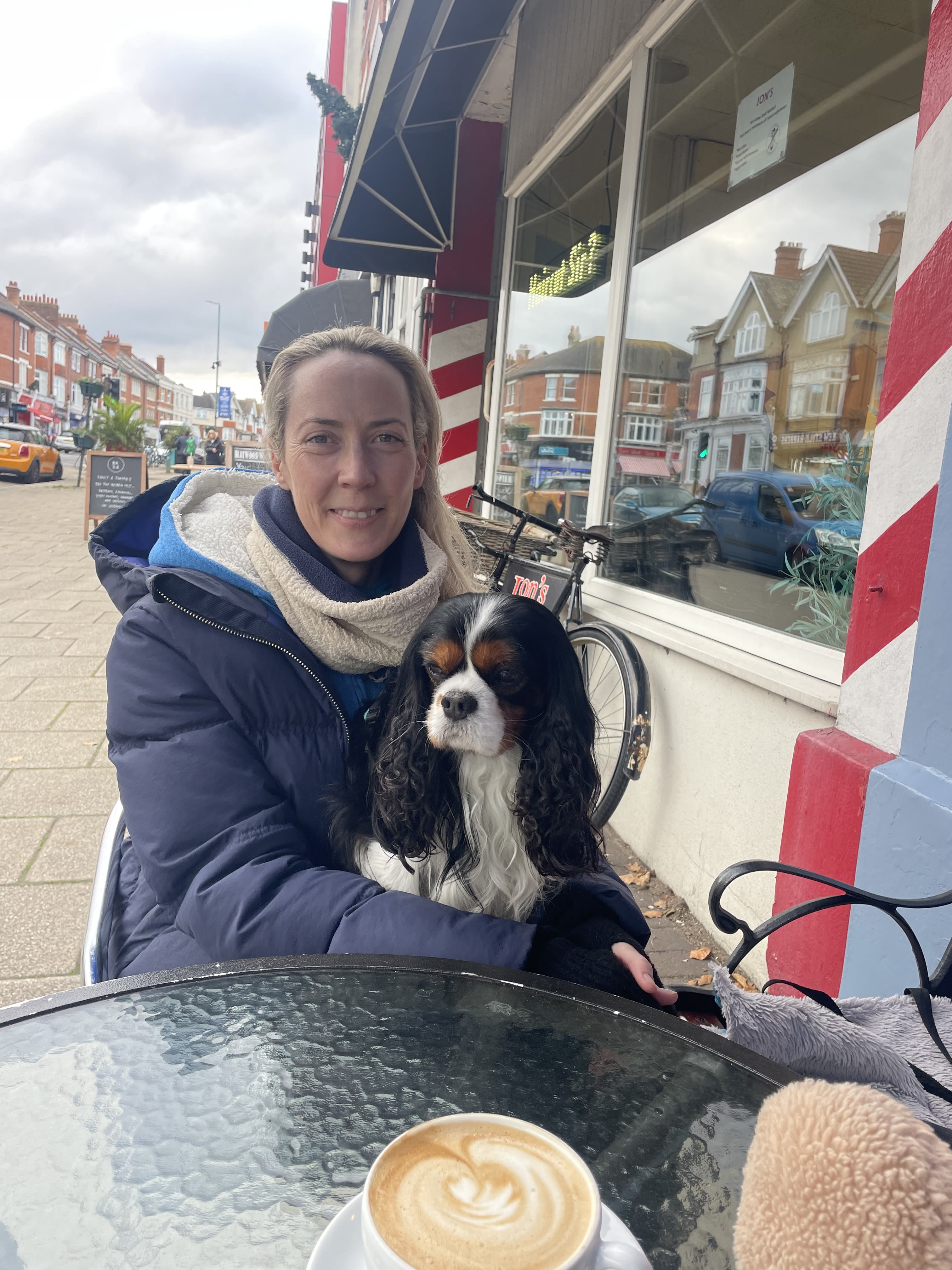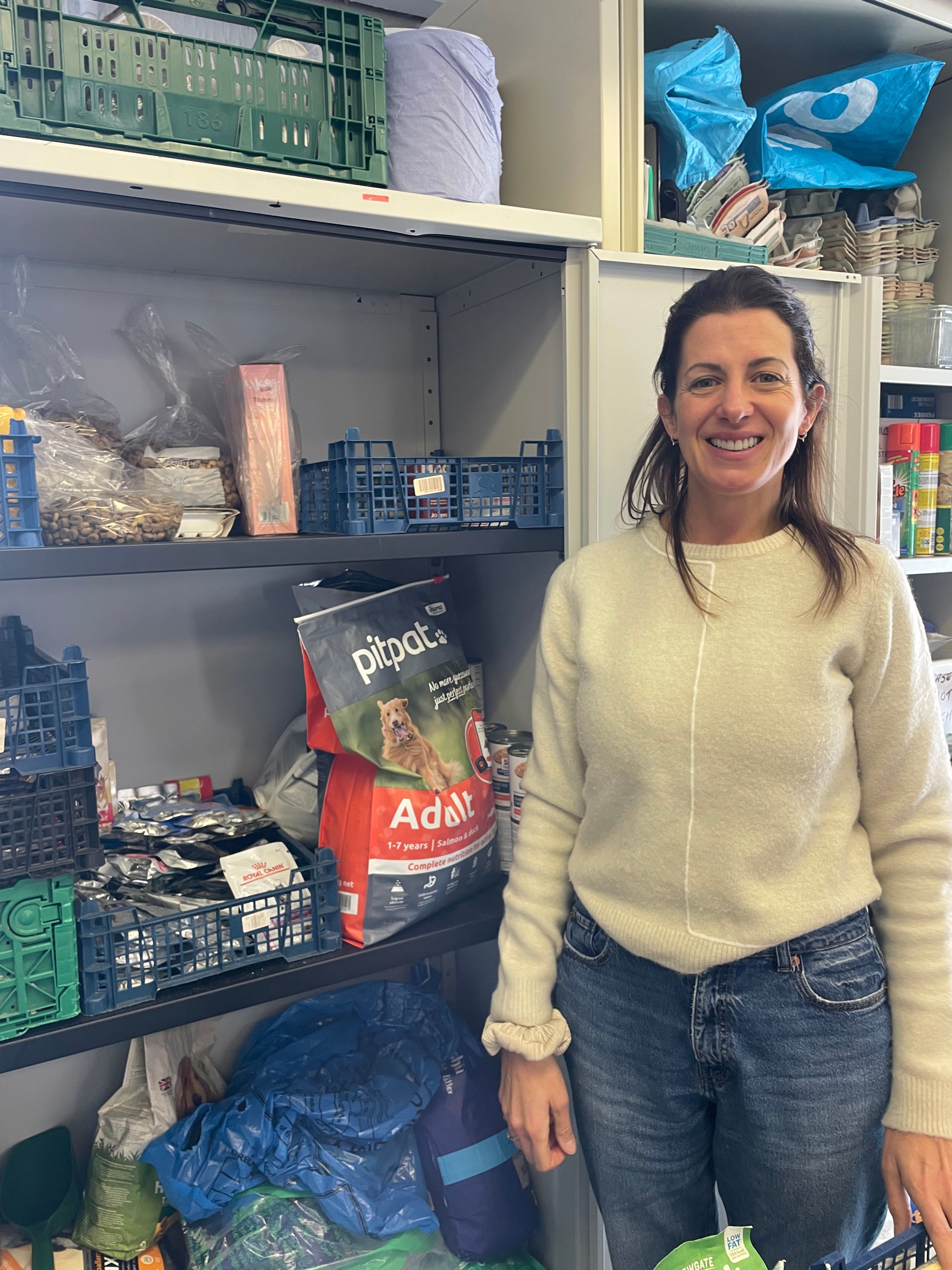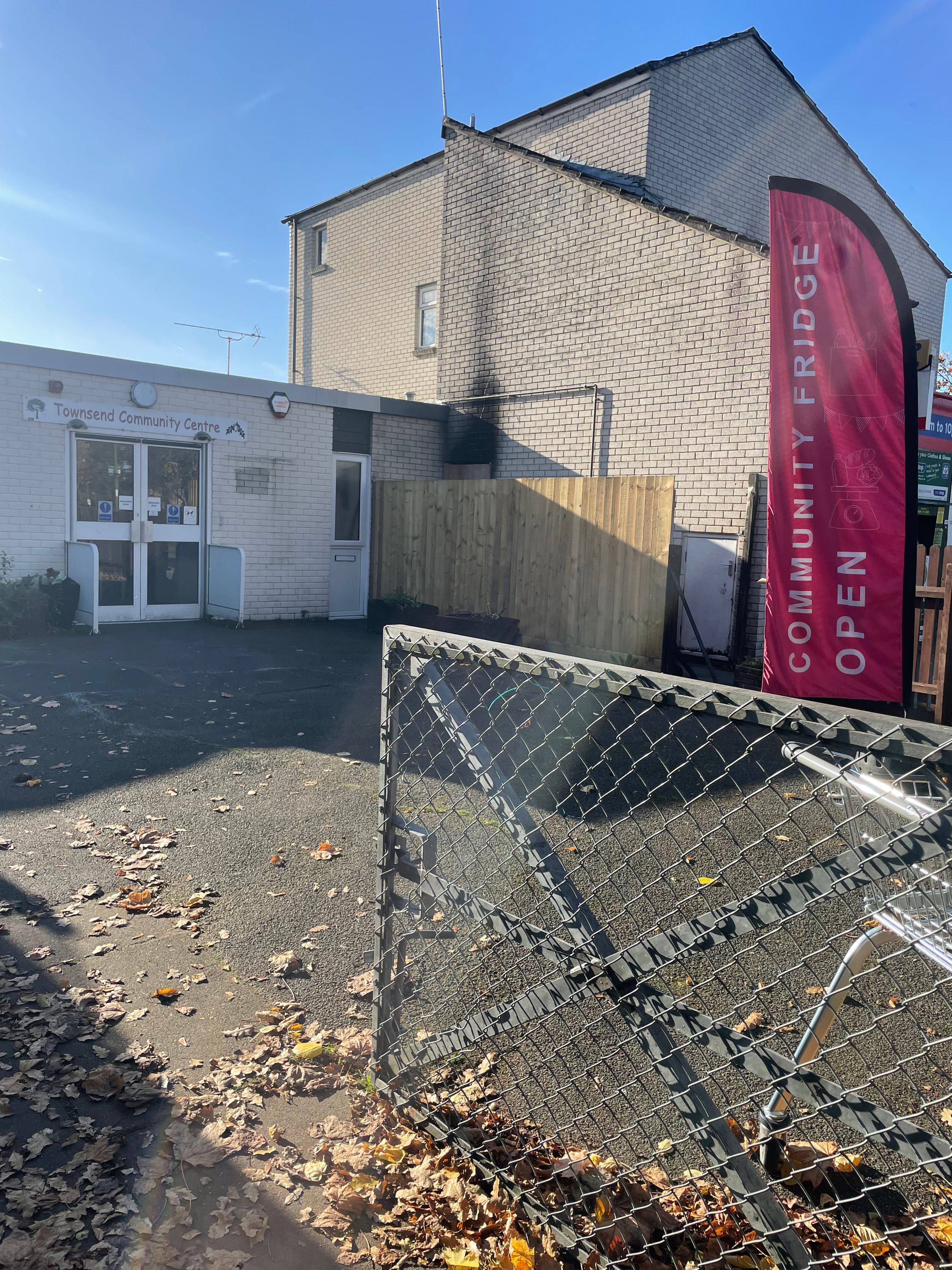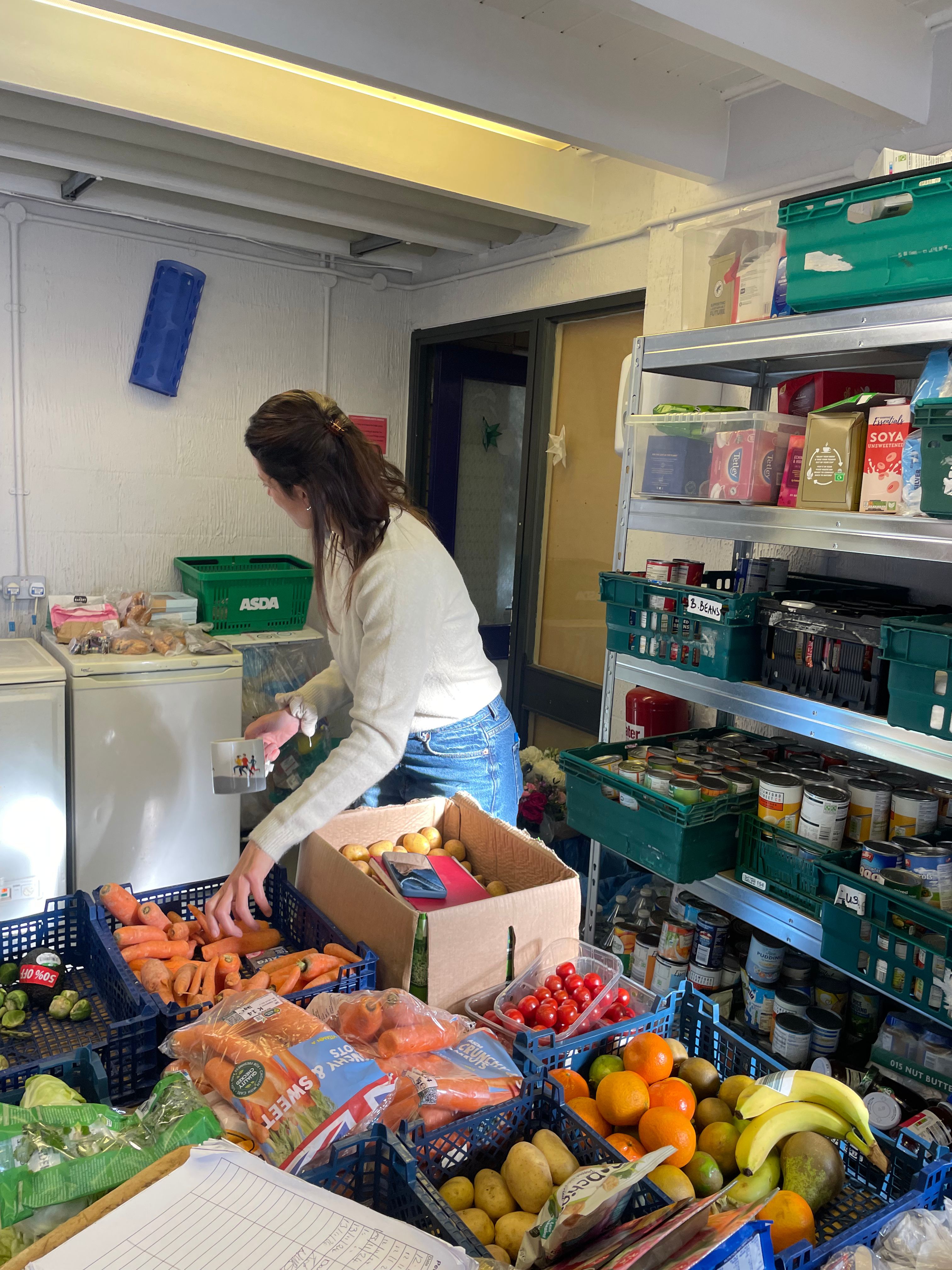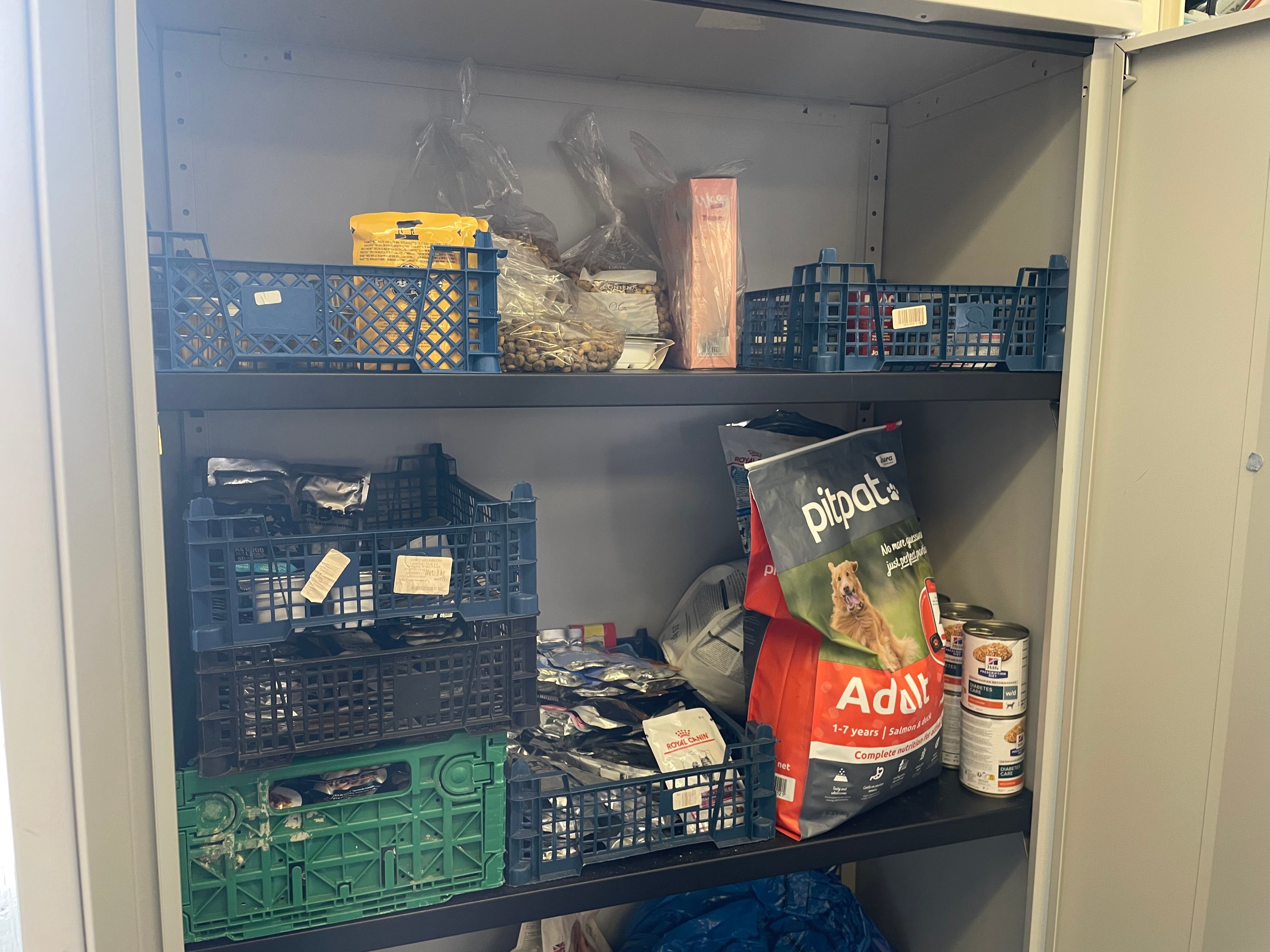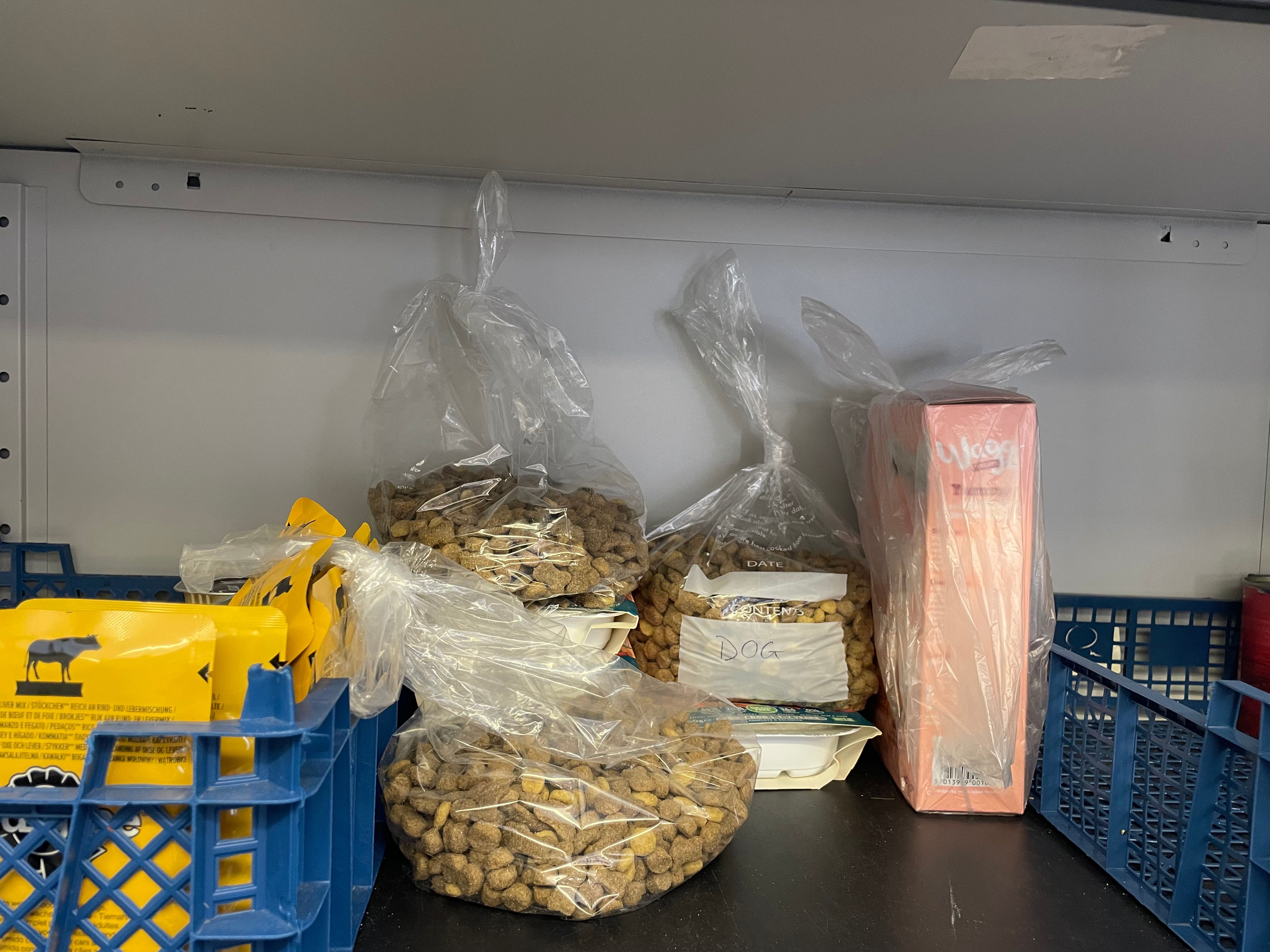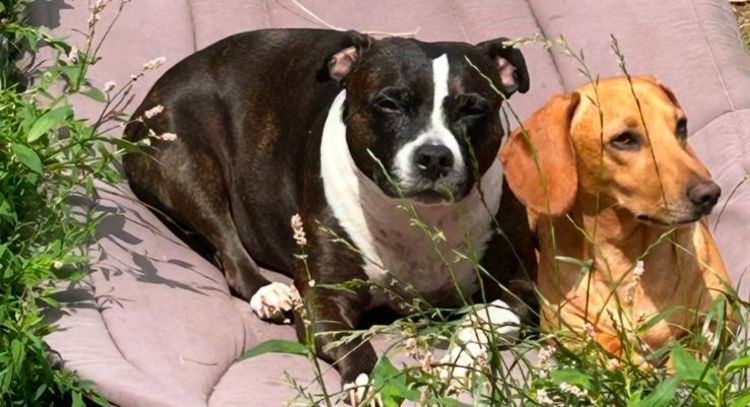Standing up for our pets
The cost-of-living crisis is having a drastic impact on pet owners - but community groups and charities are fighting back
Dog in Winton Recreation Ground. (Sourced by Daisy Pearce)
Dog in Winton Recreation Ground. (Sourced by Daisy Pearce)
It was with a heavy heart Sophie Vye picked up the phone at Bournemouth’s Staffie and Stray Rescue that day. A woman was desperately calling for an animal rescue centre to take in her dog. The cost of looking after her dad’s beloved pet, who gave her the dog as he unfortunately went into a care home, had become too much. All the rescue centres she had tried were overflowing, and so she paid for him to stay at a kennel. Sophie listened as she explained how she couldn't pay for him to be there any longer, and her last resort was euthanasia. Sophie considered the woman’s situation, and compassionately offered to pay until they found her loyal companion a loving home.
This story is like many others in the UK struggling to afford their pets during the cost-of-living crisis.
Lina S is a cat owner in Bournemouth and tells me she, in the coffee shop where she now works, has gone through periods of struggling to afford her cat, Max. She tells me about when she was moving to university and found a last minute house share to rent that was really expensive for her. This is where her struggle began and coupled with the costs of living, she was finding it more and more difficult to afford her cat.
During this trial she had to be a lot more frugal with her own food and was scrambling for money. She had to make a lot of sacrifices to her university experience, such as not going to any social events, and her learning becoming less of a priority.
“A cat is really restricting your life, and you don’t even think about it until you have them,” she tells me.
Fortunately for Lina, her university had a hardship fund which she accessed, but she still was only able to buy the essentials. This might have made another pet owner give up their animal, but Lina is passionate about her furry friend. “I’ve always had a big love for pets and cats in general,” she confides.
Max, her tuxedo cat, is black and white and has a “big personality”. Lina tells me he is the most shy cat, but is very sweet. He likes going outside, but never very far as he is too scared. If he gets cold, he likes to cuddle up to Lina and her partner.
She speaks about her fears of having to give her cat up, and explains why she would never be able to do that. “It would be a horrible feeling. I don’t want to give him up, and I don’t even want him to feel like I’ve abandoned him, that would just be awful,” she says.
After her first year of university, she moved out of the house share and back into her mother’s home. However, she had to find a place that would accept her and her cat for her second year of university. She tells me she looked for ages and couldn’t find anywhere that was affordable, and would let her keep the cat. To her dismay, this meant she had to part ways with her beloved Max, and leave him in the care of her mother.
“So I kind of know what it’s like to give a pet up,” Lina says.
Eventually, she was able to find a better living situation, and reunite with her four-legged friend. To Lina, her cat is more than just a pet, he is like family. She went through a time when she was experiencing Agoraphobia. This is a mental health disorder where you are afraid to leave your ‘safe’ environment, such as your home. She explains that Max was a “constant presence” for her which helped her with this disorder.
“He’s [Max] brought a lot to my life, I can’t even imagine what life would be like without him and you feel a bit less mental if you are alone and your pet is there,” she says.
Lina S with her cat, Max, in her house in Bournemouth. (Sourced by Daisy Pearce)
Lina S with her cat, Max, in her house in Bournemouth. (Sourced by Daisy Pearce)
Max the cat on Lina S bed. (Sourced by Daisy Pearce)
Max the cat on Lina S bed. (Sourced by Daisy Pearce)
Max the cat sat on Lina S bed with window in the background. (Sourced by Daisy Pearce)
Max the cat sat on Lina S bed with window in the background. (Sourced by Daisy Pearce)
Amy Ockelford with her dog, Storm, in front of a tree. (Sourced by RSPCA)
Amy Ockelford with her dog, Storm, in front of a tree. (Sourced by RSPCA)
Amy Ockelford is the RSPCA‘s senior national press officer. She coordinates campaigns, supports the social media team, and is its media spokesperson.
“Unfortunately we are seeing more animals coming into our care - likely as a result of the ongoing impact of the Covid pandemic coupled with the cost of living crisis - and we're also finding that animals are being adopted at a much slower rate which is creating a serious pressure on spaces in rescue centres,” she tells me.
“The cost of living crisis is one of the biggest issues to hit our society in a long time, and this is having a huge impact on animal welfare and the number of people who feel they can no longer afford to take care of their pet. Many people are having to make difficult decisions about giving up their pets.”
Amy also explains what support the RSPCA offers for animal owners struggling in the cost-of-living crisis. It has launched an online Cost of Living Hub and a dedicated phone line for advice, and tips for pet parents such as cost effective ways of taking care of them, and what to do if they can’t afford pet bills.
As well as this, it has a pet food bank partnership across England, which supplies 140 human food banks with pet food, as well as issuing veterinary vouchers to referred clients for urgent care. This scheme has provided over 1.6 million meals for struggling owners' pets.
Infographic based on data from the RSPCA Kindness Index report. (Sourced by Daisy Pearce) Link to the report underneath.
Infographic based on data from the RSPCA Kindness Index report. (Sourced by Daisy Pearce) Link to the report underneath.
Staffie and Stray animal rescue in Bournemouth logo. (Sourced by Staffie and Stray rescue)
Staffie and Stray animal rescue in Bournemouth logo. (Sourced by Staffie and Stray rescue)
Back in Bournemouth, Sophie Vye from Staffie and Stray Rescue tells me about the pressures they face with so many more pets being given up. She explains that they are experiencing roughly 40-50% more pets being given into their care compared to last year, and that is probably tied in with cost-of-living issues. However, they don’t have an endless supply of kennels. “It's a lot of pressure, because you want to help as many as you can, but there is literally no space,” she says.
“There's always a never ending supply of dogs in need of help. You know, the inbox is full all the time. Phones are full all the time.”
She recommends for someone trying to rehome their pet, to be on multiple waiting lists for different rescues, and then whoever can help first will. They also, as a charity, donate excess food to their charity shop in Wimborne. As well as selling clothes, treats, and toys for half price.
She says: “We always do our bit for the community as well, and try to make it a bit easier for people if they have dogs.
“I think housing seems to be a big issue as well, in terms of the renting side of things as there doesn’t seem to be many properties that accept animals.”
Sophie thinks it could help the situation if a group of landlords got together, and shouted about them being pet friendly, so that renters can find a place to live instead of giving up their pets. “It must be hard for people who are struggling financially, having to take a big positive from their life away.
“For someone who’s living on their own, their pet might be the only companion they see all day, and they help to actually get you outside, exercising and getting fresh air.”
Brigitte Barton with her dog on Zoom call. (Sourced by Daisy Pearce)
Brigitte Barton with her dog on Zoom call. (Sourced by Daisy Pearce)
In Stafford, Brigitte Barton, chief executive of the International Society for Animal Professionals (ISAP) sits in front of her laptop with her border collies, Milo and Ollie, and speaks to me through a Zoom call. Her work includes lots of admin, and supporting members of the group, such as specialists and behaviourists.
She speaks about how the cost-of-living crisis is affecting pet owners hugely. “It’s an avalanche that has rolled towards us, and it’s suffocating animal pet owners,” she says.
There was a period in her life, she tells me, that she was struggling to feed her pets due to the costs of living in a big, and expensive house. However, when she experienced problems with feeding her dog, she went to her plan B, which is giving her pet scraps of whatever she had eaten. Fortunately, she moved into a smaller house and things went back to normal for her.
But she illustrates that not feeding a dog properly over a long period of time will lead to stomach problems, as well as behaviour problems and for people who are already struggling, they cannot afford to resolve these issues, and she explains it is a “vicious cycle”.
Her solution is for local communities to come together and use the power of the internet to support people who cannot afford their pets. She wishes that people would ask for help more on social media. She recalls a time she saw a post on Facebook of a woman saying she couldn’t feed her pet and from this post, she ended up with lots of food bags from her community.
Brigitte says: “I think communities usually have a soft spot for pets, and you just really need to ask for help.”
Nicky Crowe sat with her dog, Merlin, outside Harry's cafe in Southbourne, Bournemouth. (Sourced by Daisy Pearce)
Nicky Crowe sat with her dog, Merlin, outside Harry's cafe in Southbourne, Bournemouth. (Sourced by Daisy Pearce)
Back in Bournemouth, Nicky Crowe is the founder of Dorset Dogs community interest company (CIC), and Merlin's pet food bank across Dorset. Her and her King Charles cavalier spaniel, Merlin, meet me at Harry’s coffee shop in Southbourne, a place she frequents as it is dog-friendly.
She tells me about their Facebook group: Dog Friendly Dorset and how at the end of 2022 they had lots of posts of people trying to rehome their dogs due to the cost-of-living crisis. This led to the creation of their first pet food bank in 2023. “By providing pet food bags, the demand has increased because now there is a provision, and people are coming out going, I need this support for help, and it will help, and it just takes one thing off their plate,” Nicky says.
Now they have 12 pet food banks across Dorset and Hampshire, which are mostly run by volunteers.
Nicky says: “We couldn’t do this without the whole volunteer team behind it, and it’s very heartwarming seeing how it helps people.”
Through this scheme they have helped roughly 3,500 pets and their Facebook group has seen a lot less posts of people trying to rehome their pets. Dog Friendly Dorset has around 30,000 followers and Nicky feels they are like “a pulse point for the dog owner community”.
She says: “If we didn’t have the community and the social media group, we wouldn’t be able to do what we do.”
Caroline Green in the kitchen storage of Townsend community centre. (Sourced by Daisy Pearce)
Caroline Green in the kitchen storage of Townsend community centre. (Sourced by Daisy Pearce)
Caroline Green is a community liaison officer for Bournemouth, Christchurch and Poole council, and as part of her role works at the Townsend pet food bank in Townsend community centre, in Bournemouth. This pet food bank, since its introduction by Nicky Crowe, is part of their community fridge project where they collect and give out food for free to those in need, without requiring a food bank voucher.
Townsend community centre offers other projects, such as Tuesday hot breakfasts; craft groups; air fryer classes; and more.
Outside of Townsend community centre in Bournemouth. (Sourced by Daisy Pearce)
Outside of Townsend community centre in Bournemouth. (Sourced by Daisy Pearce)
Caroline Green sorting through food in Townsend community centre. (Sourced by Daisy Pearce)
Caroline Green sorting through food in Townsend community centre. (Sourced by Daisy Pearce)
She tells me they have seen an increase in people accessing the food bank, and that all their work is trying to maintain what people had a few years ago. “I don’t feel like we've moved anywhere forward and I feel like we're just still trying to maintain that level of what's acceptable living,” Caroline says.
Pet food storage in Townsend community centre. (Sourced by Daisy Pearce)
Pet food storage in Townsend community centre. (Sourced by Daisy Pearce)
Labelled dog food stored in cupboard in Townsend community centre. (Sourced by Daisy Pearce)
Labelled dog food stored in cupboard in Townsend community centre. (Sourced by Daisy Pearce)
She finds that most people value their beloved pets more than themselves. “We’ve had a lot of tears in here because it’s not just about not being able to feed your pet, it’s so much more than that.
“Most of the people put their animals' needs above their own, and so if their pet is well, it eases their stress levels and they and the animal can be happy hand in hand,” she says.
Caroline explains how the community fridge project and the pet food bank works. (Sourced by Daisy Pearce)
Teresa Jack-Nunez's dogs Karma (left) and Binksy (right). (Sourced by Teresa Jack-Nunez)
Teresa Jack-Nunez's dogs Karma (left) and Binksy (right). (Sourced by Teresa Jack-Nunez)
The pet food banks help many individuals including Teresa Jack-Nunez, and her three adored dogs: Ronnie, and Karma who are Staffordshire bull terriers, and Binksy who is a dachshund and her therapy dog.
Teresa is impacted by housing benefits being replaced with universal credit, as well as higher costs of living, meaning she is living on less than before, and finding it harder to afford her pets, and so she explains the pet food bank was a “life-changer” for her.
For Teresa, she wouldn’t be able to give up her pet no matter how much she struggles as she would never forgive herself, and she would always go without food before her dogs did.
She explains that she experiences depression, and her dogs help to make some of her days better, “They make me happy and smile when I wake up, they are my best friends, they are my everything,” she confides.
Teresa volunteers at the Townsend Community Centre, and is in charge of the pet food bank there, as well as being a friendly face for those who visit.
She explains that it is “heart-breaking” to see how many people struggle, she has seen days where there are 30 people waiting at the door before they open, which can be an issue for the food bank as they have to try and spread the food out fairly, and sometimes there aren't enough food donations to do that.
However, Teresa enjoys seeing how the community comes together in hard times, “When there's a big queue, you'll see people that wouldn't normally interact, interacting with each other, which is really, really nice.
“People are so grateful that they are able to keep their pets because of what Nicky [Crowe] started,” she says.
Lina S is grateful that she was able to keep her dear cat, Max, during her struggle in the cost-of-living crisis; she feels if she were to go through it again she would have accessed a pet food bank, and thinks this is a good solution for those experiencing financial hardship.
Nicky Crowe, of Dorset Dogs CIC, agrees.
“I think everywhere needs pet food banks at the moment,” she says.


